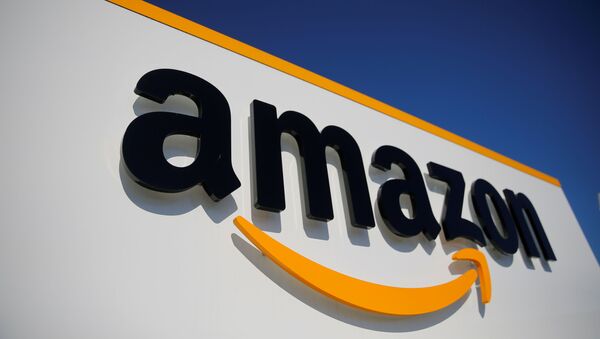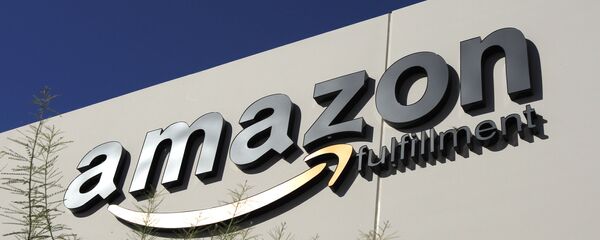Sputnik spoke about Amazon's success with Laurence Kotlikoff, a professor of Economics at Boston University.
Sputnik: According to reports, Jeff Bezos is set to be the world's first trillionaire. In your view, what are the main reasons that Amazon has been able to maintain its position on the market amid the pandemic?
Laurence Kotlikoff: The worry that people have about in-store shopping is the main reason. So it's very good news for Amazon, but really terrible days for retail outlets.
They are blocked in Boston and in Moscow, you're gonna find everything shut down. It's a ghost town. And every city in the US, with some exceptions in states that have decided to ignore the danger or the risk, they may find that they made a big mistake.
There are some countries that are able to continue maintaining retail outlets as they did before. But for the most part, we've got France, Italy, US, UK shut down. So the only way it can get the products is... over the internet from Amazon because I couldn't go down and try it out in IKEA as the store's been closed.
I do think that there's a question here whether these companies like Amazon need to be nationalised, to tell you the truth because it's a public marketplace.
The marketplace needs to be organised by governments. Some shops are not operating in a lot of countries on Sunday or Saturday, the weekends, because it's a day of rest for the workers. You don't want to have some people go to some stores if they are closed on Saturday and others are open.
It doesn't make sense. You want to coordinate. So if I go to the butcher shop, I can also walk across the street, go to the shoe store on the same day at the same hour. Otherwise, you don't get the same level of economic activity. So I think Amazon needs to be nationalised. And also the concentration of wealth going to one person or a set of people is not healthy for any country.
Sputnik: But what is the key element of Amazon’s success in comparison to any other company in this field?
Laurence Kotlikoff: What is their big advantage? They got in first. What is the big advantage of Facebook? They got in there first. It was random.
What about, a lot of companies that have been successful. We're just like a step ahead of the competition. But it's like a market where only one player can play. It makes sense to have one place as people don't want to go online to 20 different websites to see if they can find out what they can buy.
Sputnik: What impact can Amazon's success have on other competing firms on the US market?
Laurence Kotlikoff: Well, they can do what it has been doing. Same with realy big stores like Walmart. You can put small retailers out of business. Such stores as Walmart, Costco and IKEA are big box stores that are exploiting their natural monopolies.
So if you have a lot of small stores in a nice little town in the countryside and then maybe a Walmart... all the small stores in this little town suffer dramatically, and then the town is basically boarded up.
We have to think about, what kind of a society we want to have? People just buying from one company on the internet, buying from a couple of huge stores and having no community life, no towns, everybody just living inside their apartments or homes?
Is that the vision of our national urban planning that we're striving for or are we trying to maintain our way of life? Think about Europe. If you are in France or England, there are a few box stores, but they're pretty remote compared to what we have in the US.
It's a public good for everybody. Everybody can go out to the countryside and enjoy it. But then they (box stores) arrived in the Cotswolds, in the U.K. or the countryside of France.
In the US, you have to drive from the East Coast about a third way across the country to have that experience. I mean, there are places you can go in remote parts of New York state. We have a sprawling suburban system here.
We have decided that anybody can put up any kind of house, any kind of business on any road in any part of the country.
Sputnik: In your view, what can be done by the government and local authorities to help other companies keep afloat during this crisis?
Laurence Kotlikoff: During this crisis, we need to explain something to you that is a little different from the standard answer you might be expecting, which is we need to find a way to capture or kill this virus. And there is a method for doing that, which is very straightforward. Suppose you had the ability to give everybody a test every single day so if they were negative, you could give them a rating bracelet to wear during the day, and they could go back to work, school, go to movies, shop. And if they were red, if they were testing positive, they'd have to stay inside until they tested green again and then they could go out.
That would immediately mean that everybody on the outside would be safe to interact with. Everybody on the inside would be trying to survive this thing, getting health care and free fruit right now. That's an example of containing and killing the virus. Within a few weeks, we would have no virus problem.
It would have been killed off. The people with the virus would have either survived or passed away, unfortunately. And the people outside would be virus-free. Now, there are issues of false negatives in the testing, but this protocol would work even under those conditions because you have it retesting people every day, so you'll catch the false negatives, any kinds of mistakes. Statistically, the transmission rate will go to zero very, very quickly. We do not have the ability to test everybody every day. That's 7.6 billion tests a day around the world. But we have something that's almost as effective, basic as effective, which is called group testing, where you take 60 households and you pull together, you have them spit into the same cup - that's a household sample.
And then you add a reagent to that and then you take each cup, each household sample from 60 different households and you mix all that together. And now you have one batch sample, one called a sample, one group sample and you test that.
And if it's negative now, you can give a green bracelet to probably another 50 people in that household.
We could solve this problem in a month if we use them with intelligence and organized, and make it voluntary. So this is really not that hard.
Clearly, there's other ways to try and fight this: social distancing and masking... but we're not compliant.



